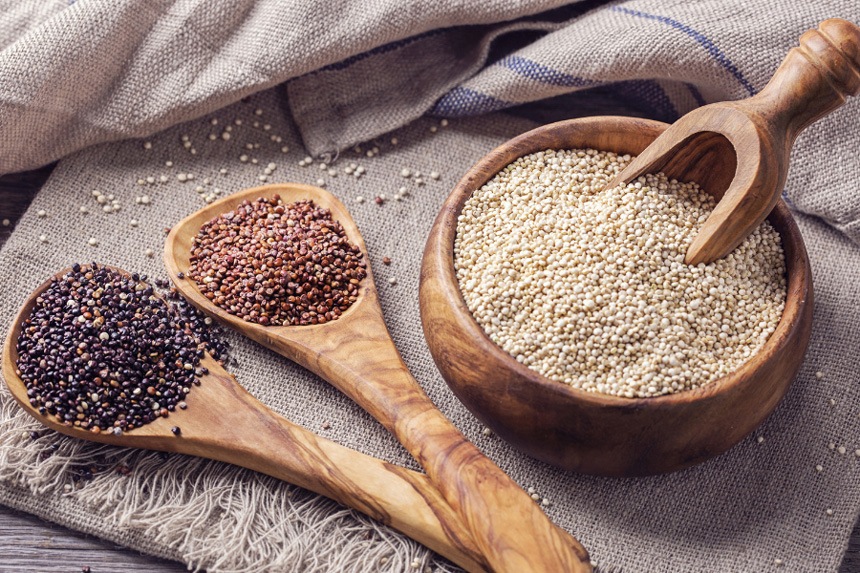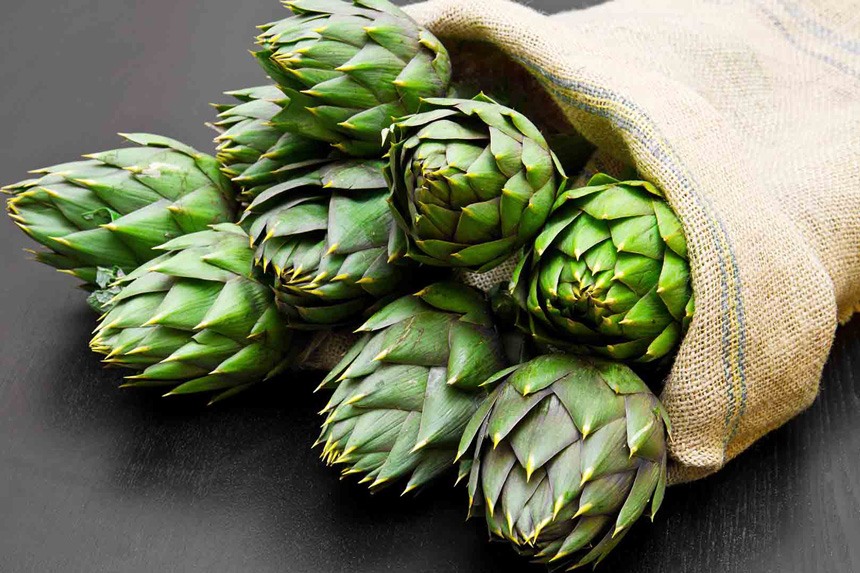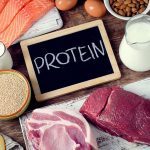Quinoa

Quinoa, revered as a superfood, serves as an excellent source of fiber, offering approximately 5.2 grams per cup of cooked quinoa or 2.8 grams per 100 grams. Beyond its fiber content, quinoa is a complete protein source, making it a valuable addition to vegetarian and vegan diets. It comprises a wide range of essential nutrients like magnesium, iron, zinc, potassium, and antioxidants, further contributing to its nutritional value. [4]
It contains saponins, compounds known for their potential antioxidant and anti-inflammatory properties. This pseudocereal’s versatility allows it to be utilized in various dishes, ranging from salads to main courses, contributing to nutrition and texture. With its gluten-free nature and rich nutrient profile, quinoa is a favorable choice for those seeking a fiber and protein-packed alternative to conventional grains.
Artichoke

Artichokes, renowned for their distinctive appearance and taste, have remarkable fiber content. With approximately 6.9 grams in 1 raw globe or French artichoke or 5.4 grams per 100 grams, these thistle-like vegetables offer fiber and an array of nutrients. Rich in antioxidants, vitamins, and minerals, artichokes contribute significantly to a balanced diet. [5]
Beyond their fiber content, artichokes contain compounds like cynarin and silymarin, linked to potential liver health benefits and aiding digestion. The fiber in artichokes primarily consists of inulin, a prebiotic that supports the growth of beneficial gut bacteria, promoting digestive wellness. Whether enjoyed as a standalone dish, incorporated into salads, or utilized in dips, artichokes stand as a flavorful and fibrous addition to any meal.





